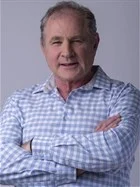
If you’ve ever tried to get something published in a peer-reviewed journal, it’s not an easy process. Especially in medical journals where you have a dinkum panel of experts who go to great lengths to ensure that their field remains evidence-based. In other words, that the authors have got their facts straight.
Well, on 13 April 2016, the Lancet Psychiatry published the outcome of a 15-year study covering 36 low-, middle- and high-income countries. What they found was this: For every $1 invested in scaling up for (treating) depression and anxiety, you get a $4 return in better health and ability to work. I know these things are difficult to measure – there’s no blood test for mood disorders and although the methodology was probably sound, working out the return is also a heuristic process somewhere along the line. But even if they’re a quarter right – that’s 100% return!
It’s interesting to note that the London School of Economics calculated that mood disorders in 2016 cost the SA economy R260 billion. Yes, billion. That was 5% of our GDP.
So how do you ‘scale up’ for treating depression in the workplace? Unfortunately, we can’t live life backwards, so we have to learn the hard way. After managing clinical depression for over 30 years, I’ve learned the hard way that managing depression is a simple process (note: I did not say easy) and can actually be condensed into a formula: 2METS.
The first ‘M’ is medicine. The is a difficult decision to make but easy to implement. You have to factor in that, contrary to popular belief, we know next to stuff-all about the brain and mood disorders and pharmaceutical companies actually only focus on the chemical imbalance theory (and that’s logical – they supply the chemicals to balance it out). These drugs aren’t equally effective for everyone, take ages to work, come with side-effects, require that you stay on them for extended periods of time and incur a financial cost. So it’s a difficult decision to make, which you need to do in consultation with your doctor (however, if your doctor spends 10 minutes with you and prescribes an anxiolytic or antidepressant – rather go see a psychiatrist – it’s not that simple a decision to make).
The second ‘M’ is mindfulness – the mental state of being in the present moment. Unlike medicine, this is an easy decision to make (none of the downside of drugs) but hellishly difficult to implement – you try sitting and thinking of nothing for an hour. As the French philosopher, Blaise Pascal says, “All of humanity's problems stem from man's inability to sit quietly in a room alone“.
The first ‘E’ is exercise. If ever there was a panacea for not only mood disorders, but health in general, it would be: exercise – cardio and resistance. I know, but suck it up, it’s important.
The next ‘E’ is for what you eat. A diet high in fresh fruit and vegetables, whole grains, fish, olive oil and low fat dairy is associated with a decreased risk of depression. Look, if you’re into Paleo and all the other fads, that’s your choice – I’m just sticking to the facts (peer-reviewed I might add).
The first ‘T’ is for what you think. It’s not so much what others say to you that matters, but what you say to yourself. For example, you have to be really innovative to be competitive in business today. That means, for a fair amount of your time you’re not going to be competent at what you’re doing. So you’re going to feel like a fool. We tend to confuse feeling with fact, and then make the conclusion that, because we feel like a fool, we are a fool. You can’t do that. It will make you sick.
To help you keep your thinking on track, we have the next ‘T’ which is therapy. Basically that’s anyone who’s non-judgmental and accepts you for who you are and always pulls you back to the real world where it’s okay to be you. In my case, it’s my dog, but humans can also perform this function well (but shop around till you find someone you can really communicate with). It’s interesting that one of the main predictors of a healthy work environment is simply to have a good friend at work who tells you like it is.
The ‘S’ stands for socialising, which alleviates the symptoms of depression. Hence the importance of the work pub. ‘Nuff said.
The final ‘S’ is for sleep, of which I can say little, because we know very little – sleep and depression have a complex relationship. What we do know is that, contrary to what the Red Bull crowd say, everyone needs 7 to 9 hours sleep a night to function optimally.
Well, there you have it: 2METS. If only everything in life were that simple. Now you know what to do to get the 400% return without joining a pyramid scheme.
